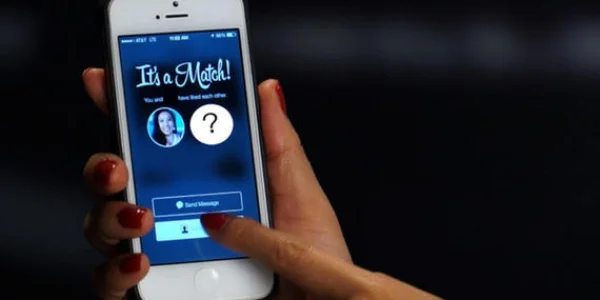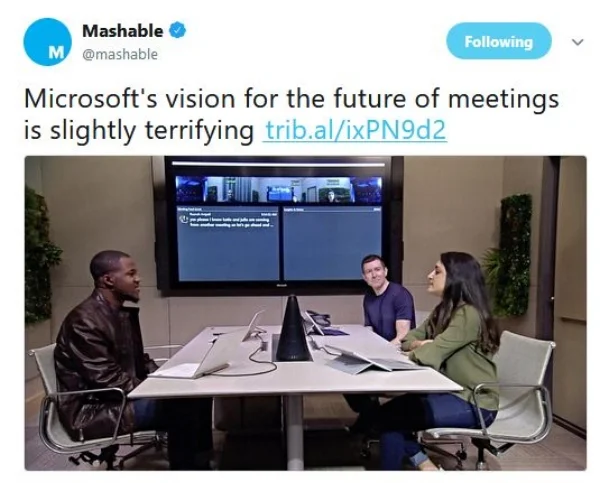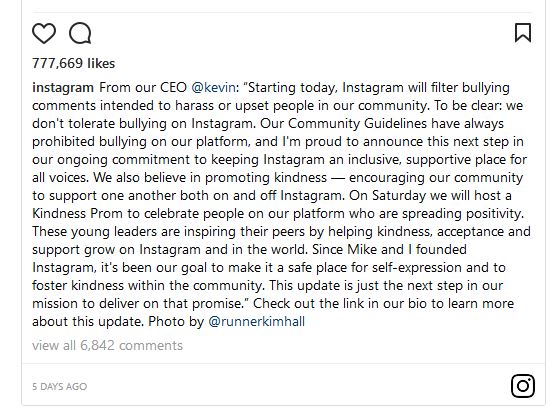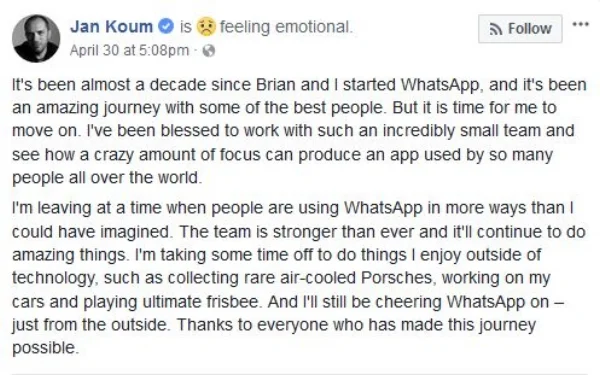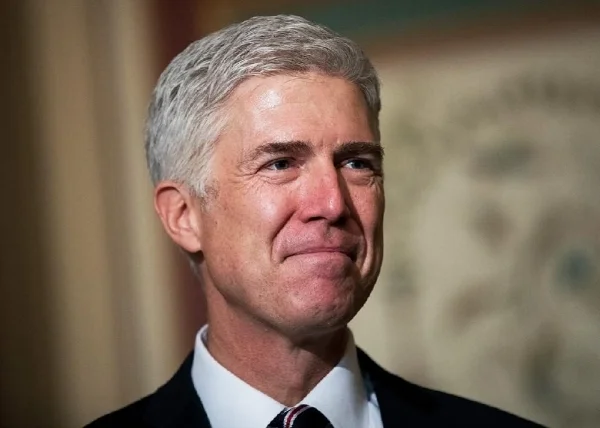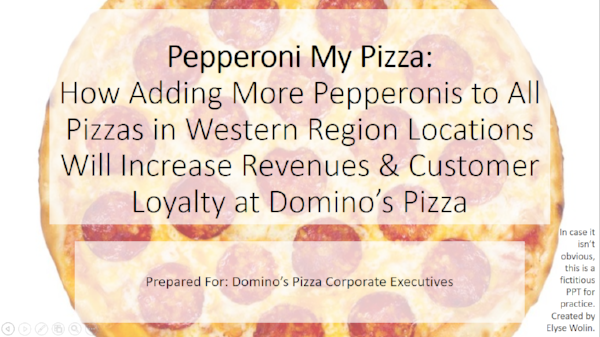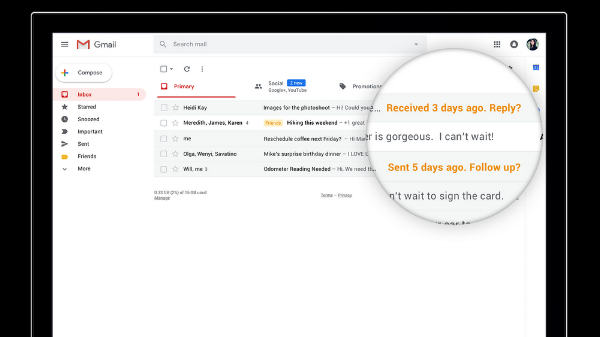McDonald's Ramadan Commercial
An American colleague working in Singapore sent me this McDonald's commercial about Ramadan, the Muslim holy month of fasting. The YouTube caption reads, "Sharing food creates a bond like no other. This Ramadan, McDonald's brings you even more reasons to share."
We see an industrious McDonald's employee, delivering food as he gets weaker because of fasting. At the end, a customer offers him food when it's time to break the fast.
The response has been positive, with one user commenting that he would like to see ads like this in the United States. A McDonald's representative expressed her views of the response:
"We're truly humbled and encouraged by the positive response received from our latest video."
"We wanted to celebrate Singapore's community spirit of human kindness, sharing and togetherness during this Ramadan month, and what better way than to do it through the lens of our McDelivery riders - who connect our brand with our customers, door to door."
"It's our small way of appreciating those working tirelessly behind the scenes to deliver meals and enabling the bonding and sharing moments during this occasion."
Discussion:
- Why do you think the video is getting such a strong positive response?
- Would such a commercial be successful in the U.S.? Why or why not? Consider cultural differences between Singapore and the U.S.
- The McDonald's representative says they are "humbled." What does she mean by this, and how does it relate to definitions of humility?
University of Oregon Apologizes for Statement About Student Death
University of Oregon leadership missed the mark in its statement about a student's death during a lake trip. Although the university offered sympathy in the original notice, the statement included language that seemed to blame the student:
It is important to point out that this tragedy is connected to an unauthorized tradition among many college students. Students from many institutions have a history of demonstrating poor life choices during visits to Lake Shasta. These activities are contrary to the values of the University and Fraternity and Sorority Organization.
When criticized for the tone and insensitivity, leaders published a new statement, which excludes this paragraph, and posted their regret on Twitter.
University officials may have wanted to use the student's death as a lesson or a warning to others. On the face of it, this strategy wasn't all bad. After all, Shasta Lake is a known partying site and has been in the news for tents and other debris left by college students. One Twitter user commented, "I think the first statement was more appropriate. Although this young man's death is tragic, bad choices have bad consequences."
Discussion:
- What's your view? Was it wrong for the university to include that statement? Why or why not?
- If not in this statement, what should the university leaders have done differently if they did want to focus on future safety?
Starbucks Clarifies Policy
Following criticism for arresting two black men in a Philadelphia store, Starbucks has set a new policy for bathroom use. Company leaders decided to adopt a more open policy, allowing anyone to use a store bathroom without purchasing products.
But people questioned the effect on Starbucks locations, worrying the policy would invite homeless people and drug users. Customers want space available for themselves. Employees, particularly, complained that the policy didn't have enough guidance for them to know, for example, when to call the police.
The new policy lists the following expectations for people in their stores:
- Using spaces as intended
- Being considerate of others
- Communicating with respect
- Acting responsibly
The policy also refers to "Addressing Disruptive Behaviors" procedures and clarifies, "If a situation presents an immediate danger or threat to partner or customer safety, Starbucks partners should call 911."
I'm struggling with the term "customer." The policy uses this terminology, and the WSJ article refers to paying and non-paying customers. To me, the latter is an oxymoron, but perhaps it is not given the company's mission to create a "third place."
Discussion:
- What benefits and potential downsides do you see from Starbucks' open policy?
- How could Starbucks further clarify the policy to address customers' and employees' concerns?
- One point of clarification, if you haven't mentioned it, is about timing. How long should people be permitted to stay without purchasing an item? What are your thoughts about what is fair?
- What's your view of the term "customer" in this context?
Communications About Cuba Plane Crash
A plane crashed near the Havana, Cuba, airport, leaving more than 100 people dead and only three survivors. Cuban President Miguel Diaz-Canel delivered the bad news:
"There has been an unfortunate aviation accident. The news is not very promising. It seems that there is a high number of victims."
The president also described recovery efforts:
"Things have been organised, the fire has been put out, and the remains are being identified,"
The reason is unknown, although an Al Jazeera article referred to the Boeing 737 as "aging." Aviation accidents are rare, but a BBC article chronicles several, including the previous crash in Cuba, in 1989, which killed 150 people.
Discussion:
- How well does the president communicate the events? We see only two short quotes here, so he may have said more. What else should he say? How can he communicate compassion?
- Research communications around other deadly plane crashes. How do the situations compare, and how should the communications differ?
- Should Boeing make a statement about the situation? Why or why not?
Japanese Train Company Apologizes for Early Departure
In the United States, we're used to late transportation services, but in Japan, early departures can be an issue—even 25 seconds early. Japan's rail system is known as "one of the most punctual railway services in the world."
West Japan Railways (JR West) issued a statement and formal apology for the delay: "The great inconvenience we placed upon our customers was truly inexcusable.” The statement included a commitment to do better: “We will be thoroughly evaluating our conduct and striving to keep such an incident from occurring again."
Also interesting, from a cultural perspective, is the decision process: the conductor mistakenly thought the train was departing at 7:11. Realizing the mistake but having already closed the doors and seeing no waiting passengers (although a few were waiting), the conductor decided to leave early rather than reopening the doors, which could have caused the train to be late, a far worse result.
A Sora News article explains the impact on the Japanese people:
"Being six minutes late is enough to get you in trouble in with bosses and teachers in Japan, and those who missed a transfer because they couldn’t take the 7:12 would be even later reaching their destination."
Back in 2013, I wrote about NY Metro-North's failure to apologize for a derailment that killed four people. Although the MTA has been more willing to apologize lately, this situation represents a stark contrast.
Discussion:
- How would you describe the cultural differences—about both time and apologies—between Japan and the United States illustrated in this situation? What might account for these differences?
- What are the risks of over-apologizing?
- How does this situation illustrate accountability and integrity as character dimensions?
"Can We Use 'I'?"
In an article, "The Soul-Crushing Student Essay," a writing instructor at The New School in New York City laments first-year students' writing. Every semester, he says, students ask, “Do you mean we can write with the word ‘I’?” He says, "Somewhere along the way, these young people were told by teachers that who they are in their writing ought to be divorced from who they are on their phones, or as the writer Grace Paley may have said, with their families and on their streets."
He encourages students to write about their own experience:
First, we need to value more the complete and complex lives of young people: where they come from, how they express themselves. They have already lived lives worthy of our attention and appreciation.
Second, we need to encourage young people to take seriously those lives they’ve lived, even as they come to understand—often through schooling and just as often not—that there’s a whole lot more we’ll expect of them. Through this, we can help them learn to expect more of themselves, too.
I'm sensitive to the topic because several students recently asked me this question about their final assignment—a self-reflection paper.
Discussion:
- Were you taught to avoid "I" in writing? What was the reason?
- What is the value of writing from your own experience?
- How does using "I" make your writing clearer and more concise?
Cornell Student Presents Thesis in Underwear
Upset about a professor's advice to wear professional clothing, a student at Cornell University delivered her practice senior thesis in her underwear. The news is making international headlines, and some of the facts presented aren't quite what transpired.
In this theater class, "Acting in Public," the faculty member encourages students to consider everything about their presentation, including dress. When a student wore cut-off shorts, she was asked to consider the impression she wanted to make.
Most students in the class did not agree with how the situation was portrayed, and 11 of the 13 other students in the class wrote a long description from their perspective. They write that, although they support the student's fight for equality, "All of us feel that our professor’s words and actions were unfairly represented in the post, with certain quotes taken out of context, and we wish to clarify any misunderstandings that may have occurred." They also explain that the professor "apologized for her choice of words, acknowledging that the notion of 'short shorts' on women carries a lot of cultural and political baggage." But the student wasn't in the classroom to hear this comment.
Discussion:
- Read the Cornell Daily Sun article and the other students' perspective. Whose side do you favor and why?
- How do you view the student's actions: courageous, distasteful, disrespectful, or something else?
- What's your opinion on "professional attire"? In what situations should people adjust what they wear?
- Compare this situation to an employment interview. What is similar, and what is different?
Ghostwriting for Dating Ads?
Ghostwriting is moving beyond celebrity biographies to customer service emails, employment negotiations, and posts on dating sites.
Online dating coach Erika Ettin admits, "I write to potential matches. I respond. I delete the inappropriate people.” She'll also rewrite profiles and swipe on her clients' behalf. She defends the practice:
I know sometimes people paint ghostwriting in a negative way. They say it’s disingenuous. But it’s a trend that’s going to continue. People don’t always know what to write and how to put their best foot forward.
A few years ago, actor George Takei was criticized for using a ghost writer. His 4 million Facebook followers were upset when they learned he paid $10 a joke.
Discussion:
- When do you think it's appropriate to hire a ghostwriter, and when does the practice cross a line?
- Ettin mentions the argument that using a ghostwriter is "disingenuous." Do you agree? Why or why not? Is it authentic? What's the difference?
- Would you hire a ghostwriter for dating or for job communications? Why or why not?
MSU's Denial as a Cultural Issue
A Chronicle of Higher Ed article blames Michigan State University's ambitions and culture for their leaders' lack of response to years of sexual abuse on campus. More than 12 people knew of complaints against physician Larry Nassar, but the abuse continued for years.
Lou Anna K. Simon's leadership is questioned in the article. Although clearly a committed leader to the university, Simon is criticized for focusing so much on "two decades of status-climbing" that a culture of denying any wrongdoing evolved. One of the trustees summed up the issue in a letter and emphasized "We must embrace our obligation to apologize and offer justice."
Apologizing may be a sore subject for the trustees because Simon avoided it in the case of Larry Nassar's victims, according to the Chronicle article:
She talked about how “it is virtually impossible to stop a determined sexual predator and pedophile, that they will go to incomprehensible lengths to keep what they do in the shadows.” She often used “regret,” “sympathize,” and “acknowledge” in her written statements, but not “apologize.” She emphasized that sexual assault is a societal problem, not a Michigan State one. She highlighted all of the steps the university had taken to prevent sexual misconduct.
Discussion:
- Analyze the trustee's letter. What principles of business writing are followed? What are the strengths of the letter, and what could be improved?
- The trustee encourages MSU leadership to listen. What does he mean by this, and how would listening help the situation?
- What is the value of apologizing and admitting failure? What are the potential downsides, particularly for a university trying to improve its stature?
- This story illustrates several failings of leadership character. Which can you identify, and which do you think are most relevant here?
The Future of Meetings?
Microsoft's meeting vision shouldn't come as a surprise: voice recognition programs are already making their way into the workplace. But a new device, which captures both facial expressions and voice, picks up everything, even side conversations.
The future of meetings has some people worried about jokes and off-hand remarks that will be forever documented. On the other hand, one benefit may be that people will be more careful about what they say. Will workplace civility improve?
The software has additional benefits. It translates and transcribes, making it easier for international and deaf meeting participants.
Discussion:
- What's your view of this technology: perfect for business, too much, or something else?
- How, if at all, do you think this technology will improve meetings?
- In what online meetings have you participated? What were the benefits and downsides?
- To what extent do you think this technology would help to hold people accountable?
Instagram's New Bully Filter
Instagram has implemented a new technology that will not display comments considered bullying. The program, run by artificial intelligence (AI) technology, can detect “offensive and spammy” comments in English and in at least eight additional languages. Although the filter is set by default, users can "opt out" if they want to see such comments, or they can include specific words to screen out.
In an Instagram post, shown here, and in a longer post titled "Protecting Our Community from Bullying Comments," CEO and Co-Founder Kevin Systrom promised more diligence, particularly to protect young users:
We also believe in promoting kindness — encouraging our community to support one another both on and off Instagram. On Saturday we will host a Kindness Prom to celebrate people in our community who are spreading positivity. These young leaders are inspiring their peers by helping kindness, acceptance and support grow on Instagram and in the world.
Research shows the danger of online bullying: of 2,000 middle schoolers in the study, those who experienced cyberbullying were twice as likely to attempt suicide than those who did not experience cyberbullying.
Discussion:
- Analyze Instagram's announcement of the filter. Who are the audiences, and what are the communication objectives? How well does the message achieve those objectives?
- What's your view of Instagram's response to the problem of cyberbullying? Are the company leaders doing enough, or should they do more?
- How does this news relate to the leadership character dimension vulnerability?
Air France Grapples with Strike and CEO Resigns
Negotiations over pay aren't going well at Air France, and CEO Jean-Marc Janaillac has stepped down as a result. The last straw was a pay increase proposal that failed to win staff support. The company offered 7% increases over five years, but the union is holding out for 5.1% this year.
You may remember the last highly publicized conflict at Air France, in 2015, when employees angrily ripped clothing off two company executives after 3,000 layoffs were announced. Janaillac was appointed in 2016 to resolve the disputes, but they have continued, and investors have expressed their frustration: the stock is down 40% this year.
Air France says rising fuel prices and a strong euro will make the strikes more challenging for the airline, which managed to keep long-haul flights on schedule but cancelled about 20% of medium-haul and some short-haul flights because of staffing shortages.
In his resignation speech, Janaillac was emotional, clearly disappointed in the outcome. Unfortunately, his decision to step down didn't inspire investors, who responded by bringing the share price down another 14%.
French Prime Minister Bruno Le Maire refuses to bail out the company:
“If it doesn’t make the necessary efforts to be at the same competitive level of Lufthansa and other major airlines, it will disappear. I am not taking the money of the French and putting it in a company that isn’t at the required competitive level.”
Image source (cover).
Image source (above).
Discussion:
- How can the airline manage through the current crisis? What type of communication could be helpful at this point?
- Janaillac put his job on the line with the latest pay proposal. Did he do the right thing by resigning? Why or why not?
- Which leadership character dimensions are at play in this situation?
Tesla's Contentious Conference Call
Called "the most unusual call...in 20 years," "bizarre"—and "the best call I've heard in a long time," Tesla's earnings call is a popular news item. On balance, as one analyst said, “Needless to say, the call didn’t go well," and the evidence is in the stock price, which dropped 7.9% (5% within 20 minutes).
Here are a two highlights of CEO Elon Musk's responses to questions:
Sanford Bernstein's Toni Sacconaghi: "And so where specifically will you be in terms of capital requirements?"
Musk: "Excuse me. Next. Boring, bonehead questions are not cool. Next?"
RBC's Joseph Spak: "The first question is related to the Model 3 reservations, and I was just wondering if you gave us a gauge as maybe some of the impact that the news has had. Like, of the reservations that actually opened and made available to configure, can you let us know, like, what percentage have actually taken the step to configure?
Musk: "We're going to go to YouTube. Sorry. These questions are so dry. They're killing me."
At one point, Musk, frustrated by a question, said, "Please sell our stock and don't buy it." Candor is one thing, but I'm not sure a CEO wants to alienate investors.
CNBC host Jim Cramer is one of the opposing voices, who complimented Musk on his directness and telling the truth. He said that many CEOs are thinking what Musk said out loud. At the same time, Cramer acknowledged that this might be Musk's last call.
Discussion:
- What's your view of Musk's responses during the call? What factors into your assessment?
- Watch Cramer's analysis. To what extent do you agree with his assessment?
- What are the risks of Musk's approach (in addition to the short-term stock price drop), and what are the potential rewards?
- Some might say Musk is being authentic. How do you see it?
WhatsApp Co-Founder Leaves Over Data Controversy
Founder and CEO of WhatsApp Jan Koum will leave because of clashes with Facebook, which acquired the start-up in 2014. Koum confirmed the decision in a Facebook post.
Koum follows another WhatsApp executive, Brian Acton, who left last year after publicly criticizing Facebook's decision to put ads on WhatsApp. Acton's public comments have continued; in March, when Facebook was in the news for the Cambridge Analytic controversy, he posted, "It is time. #deletefacebook."
Privacy was also paramount to Koum, who said WhatsApp was designed "around the goal of knowing as little about you as possible." We can see how this stance would conflict with Facebook's ad strategy, which targets users based on many known characteristics.
Mark Zuckerberg has been gracious about Koum's departure, at least publicly. He responded to Koum's post on Facebook:
Jan: I will miss working so closely with you. I'm grateful for everything you've done to help connect the world, and for everything you've taught me, including about encryption and its ability to take power from centralized systems and put it back in people's hands. Those values will always be at the heart of WhatsApp.
Discussion:
- Describe the culture clash between Facebook and WhatsApp. What do you think went wrong during the acquisition process?
- Assess Koum's and Zuckerberg's posts. How well do they represent their companies and themselves?
- What's your view of Acton's open criticism of Facebook: disloyal, hurtful, authentic, courageous, or something else?
Supreme Court Justice's Writing Style
Supreme Court Justice Neil Gorsuch is getting so much attention for his writing that #GorsuchStyle is trending. Lauded before he joined the court, Gorsuch's writing is now criticized as a sidetrack "history lesson," "garbled," and "exhausting to read." Critics cite examples and wonder why a justice is spending time on alliteration:
“Disruptive dinnertime calls, downright deceit and more besides drew Congress’s eye to the debt collection industry.”
Another hallmark of his new style is making a pithy comment and then explaining its meaning as in this example:
"Chesterton reminds us not to clear away a fence just because we cannot see its point. Even if a fence doesn’t seem to have a reason, sometimes all that means is we need to look more carefully for the reason it was built in the first place."
A Yale student analyzed Gorsuch's court decisions. Compared to others' writing, he used more contractions (3.9 per 1,000 words compared to 0.8) and started sentences with words such as “and,” “but” and “so” more often (4.9 times out of every 1,000 words compared to 1.5). Analysts seem to agree that his style is getting less formal, but he also likes to draw attention to himself.
Discussion:
- What is the value of alliteration and other rhetorical devices? When are they best used, and when are they best avoided?
- Gorsuch's seeming desire to call attention to himself contradicts business writing and leadership character principles. Which ones?
- Why might Gorsuch's style change over time?
- What distinguishes your writing style? Can you identify a sentence structure, phrase, or structure that you use often—and maybe too often?
- Slate writer Mark Joseph Stern analyzed another passage and identified several examples of "fat." Try to improve conciseness in this paragraph. How many extraneous words can you omit?
The Court today clears away a fence that once marked a basic boundary between federal and state power. Maybe it wasn’t the most vital fence and maybe we’ve just simply forgotten why this particular fence was built in the first place. But maybe, too, we’ve forgotten because we’ve wandered so far from the idea of a federal government of limited and enumerated powers that we’ve begun to lose sight of what it looked like in the first place.
MSNBC Correspondent Responds to Criticism
MSNBC Correspondent Joy Reid is trying to explain homophobic posts on her blog, which has been inactive for years:
"I genuinely do not believe I wrote those hateful things ... But I can definitely understand, based on things I have tweeted and have written in the past, why some people don't believe me."
Reid hired a security analyst to prove that her site had been hacked, saying that the breach was "part of an effort to taint my character with false information by distorting a blog that ended a decade ago.” But the investigation didn't uncover evidence. The hacking defense typically doesn't turn out well. Remember Amy's Baking Company in 2013?
On her show, "AM Joy," Reid apologized for past comments:
“I have not been exempt from being dumb or cruel or hurtful to the very people I want to advocate for. I own that. I did it. And for that I am truly, truly sorry.”
A Mediaite story details Reid's previous posts:
“I look back today at some of the ways I’ve talked casually about people and gender identity and sexual orientation and I wonder who that even was. But the reality is that like a lot of people in this country, that person was me.”
A Vox article acknowledges that people's views, particularly of same-sex marriage, have changed. In the end, Reid spoke about her personal development:
“The person I am now is not the person I was then. I like to think I’ve gotten better as a person over time — that I’m still growing, that I’m not the same person I was 10 or five or even one year ago. And I know that my goal is to try to be a better person and a better ally.”
Discussion:
- How could Reid have addressed the issue without the hacking defense?
- Watch Reid's video apology. How well does she handle the situation?
- People do change. Do you find Reid's comments sincere and believable? Why or why not?
Narrative Alternatives to PPT at Amazon and Google
In his annual letter, Amazon CEO Jeff Bezos wrote that he has banned PPT:
"We don’t do PowerPoint (or any other slide-oriented) presentations at Amazon. Instead, we write narratively structured six-page memos. We silently read one at the beginning of each meeting in a kind of 'study hall.'"
Nancy Duarte describes the value of a narrative or storytelling approach: "storytelling in presentations is a powerful way to grab attention, hold attention, and to change beliefs." She gives examples from our favorite books and movies, which build suspense over time. Stories are also a good way to inspire empathy and other emotional reactions. This is difficult to achieve with traditional PowerPoint bullets.
A Harvard Business Review article, "Structure Your Presentation Like a Story," provides more guidance and summarizes the approach with a graphic:
For Bezos, the narrative style means that points are connected and organized in a logical sequence with some resolution, conclusion, or outcome. GeekWire created this six-page memo in Amazon's style as an example.
At Google, CEO Sundar Pichai also emphasizes storytelling with pictures:
"Since stories are best told with pictures, bullet points and text-heavy slides are increasingly avoided at Google."
Both executives are warning against the type of communication that is overly concise and missing context, connections, and cohesiveness. A ZDNet article summarizes some of the issues with PowerPoint and describes the now-infamous role of PPT in a U.S. disaster:
"'[B]ulletized' thinking contributed to the Challenger disaster, where 7 crew members died and a multi-billion dollar craft destroyed due to an O-ring failure. The big problem was that NASA management wasn't really listening to the engineers—and breaking issues up into bullets helped them do that."
Pichai's design approach aligns with PPT trends over the past few years. We're seeing much less text, fewer bullets, and more images, and this style follows the evolution of web design. On websites, we see many more background videos and photos and not much text, particularly on consumer websites.
Discussion:
- What are the advantages and downsides to the narrative memo? For what types of situations do you think this approach would work well? For what situations might PPT be a better choice?
- For practice, try to convert this terrible PPT presentation to one with less text and more meaningful images. Clean up the design, add charts to help your audience visualize data, and of course, correct the grammar.
Chipotle CEO Generates Excitement
After a dismal three years of food-safety issues, Chipotle saw a strong first quarter, and CEO Brian Niccol is confident about the company's future. Since the outbreaks, part of Chipotle's turnaround plan was to introduce new menu items, but they did not prove successful.
In an interview, Niccol described new plans, which may include drive-thrus, longer hours, mobile ordering, or menu items that are more thoroughly tested. But Niccol resists offering deals and breakfast, despite what Bill Ackman, Chipotle's largest shareholder, advises:
“I’ve been very clear with him: Not now, Bill and I have had a couple of really good conversations. He may have some ideas that I don’t think are the right ones now.”
Here's the earnings call webcast. In the press release, Niccol further explained the company's plans:
"While the company made notable progress during the quarter, I firmly believe we can accelerate that progress in the future. We are in the process of forming a path to greater performance in sales, transactions, margins and new restaurants. This path to performance will be grounded in a strategy of executing the fundamentals while introducing consumer-meaningful innovation across the business. It will also require a structure and organization built for creativity, action and accountability. Finally, Chipotle will have a culture that is centered on running great restaurants, putting the customer first, innovating for today and tomorrow, supporting each other, and delivering on commitments. The future will be meaningful at Chipotle."
(Disclosure: I own a modest amount of Chipotle stock.) Image source.
Discussion:
- Assess the earnings call or press release. What business jargon do you identify? Is it too much, or is it appropriate for the situation and audience?
- Niccol is challenging Ackman's ideas, which is risky for a new CEO. How do you interpret his statement? Again, is what he says appropriate for the situation, or should he present his views differently?
- Would you say that Niccol is demonstrating courage in his statement about Ackman? Why or why not?
Tips for Navigating the New Gmail
Will the new Gmail make email easier? I'm not so sure. In this WSJ video, David Pierce describes the new design as "busier," particularly if you have special folders. A new bar on the right side indicates, next to your list of email, your calendar and list of tasks, which is useful for an "at-a-glance" view.
Pierce suggests collapsing the left side bar and shrinking other parts down. He's a fan of the "confidential note," which will automatically delete messages after a period of time. You can also unsend a message now at any time, which is also a good addition.
Other features include snoozing a message and setting high priority notifications on your phone.
Some of these features seem helpful, but overall, I'm skeptical about whether they will make us more efficient. This is the first major upgrade since 2011, and if you don't want the new features, you can revert back to the old version.
Discussion:
- Identify a few features of your email program that you believe improve your efficiency. How do you use these?
- If you use Gmail, how do you assess these new features? Which do you find most and least useful?
MTA Criticized for Lack of Transparency
Commissioners at the New York Metropolitan Transportation Authority (MTA) questioned increasing costs and whether the agency has been transparent. Of particular concern are additional costs of about $1 billion and cost overruns for a project that resulted in 19 instead of 32 subway stations getting renovated. One commissioner said, “It is indefensible that we did not receive this information prior to it being reported in the press." The governing body discovered the information from a Wall Street Journal article.
Chairman Joe Lhota, who was appointed last summer, acknowledged that the agency has been working on being more transparent:
“Not a second in a day goes by when I don’t think about transparency at this agency and what we need to do to provide information to all of you."
NY Mayor Bill de Blasio and New York City Council Speaker Corey Johnson requested more transparency about spending and service improvement measurements and asked for monthly briefings and an "evaluation of efficacy."
Discussion:
- How would you define transparency, and how does it relate to accountability?
- After reading more about the situation, how would you assess the agency's actions? Do you agree with the commissioners' assessment? If you believe a lack of transparency exists, do you think it's intentional? Does it matter if it is?
- Why do organizations lack transparency? What do they potentially gain and lose?
- What do you think an "evaluation of efficacy" means?











